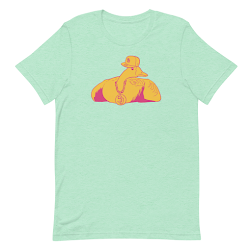As nearly 2,000 nurses from San Diego-based Rady Children's Hospital prepare to go on strike, we explore the wage disparity between hospital executives and nurses.
Nurses at Rady Children's Hospital are voicing their dissatisfaction with their pay and benefits amid stalled contract negotiations, casting a critical light on the leadership's handling of the situation. The 1,600 nurses announced a potential two-day strike starting at 6am on July 22 if no agreement is reached.
Chris Abe, a nurse and vice president of operations for Rady, stated that the hospital will bring in 600 replacement nurses if the strike occurs. "We always hoped you wouldn’t have to go to a strike, but you have to be ready for that," she is quoted. "We are going to take care of the kids no matter what, with the excellent care that we do, even if they choose to walk away from them."
Despite Abe's assurances, the nurses' union and hospital management are at an impasse. The union is demanding a 30% raise over three years, while the hospital is offering about 22%. Union representatives argue that their wages are significantly below market value and that better medical and retirement benefits are necessary.
The union, represented by United Nurses of Children’s Hospital - an affiliate of the International Brotherhood of Teamsters Local 1699 - voted overwhelmingly to strike after rejecting the proposed contract. "Our goal has never been to strike. It's always to come to a fair contract for our employees," said Reid Corley, a critical care nurse and member of the union's bargaining team. "We want a fair, living wage."
Katie Langenstrass, UNOCH’s president and a medical and surgical nurse at Rady Children's, indicated that 95% of the union's members who participated in the vote authorized a strike. She highlighted that Rady's nurses are significantly underpaid compared to their peers in other local hospitals, both in terms of wages and benefits.
Nurses at Rady Children's Hospital are voicing their dissatisfaction with their pay and benefits amid stalled contract negotiations, casting a critical light on the leadership's handling of the situation. The 1,600 nurses announced a potential two-day strike starting at 6am on July 22 if no agreement is reached.
Chris Abe, a nurse and vice president of operations for Rady, stated that the hospital will bring in 600 replacement nurses if the strike occurs. "We always hoped you wouldn’t have to go to a strike, but you have to be ready for that," she is quoted. "We are going to take care of the kids no matter what, with the excellent care that we do, even if they choose to walk away from them."
Despite Abe's assurances, the nurses' union and hospital management are at an impasse. The union is demanding a 30% raise over three years, while the hospital is offering about 22%. Union representatives argue that their wages are significantly below market value and that better medical and retirement benefits are necessary.
The union, represented by United Nurses of Children’s Hospital - an affiliate of the International Brotherhood of Teamsters Local 1699 - voted overwhelmingly to strike after rejecting the proposed contract. "Our goal has never been to strike. It's always to come to a fair contract for our employees," said Reid Corley, a critical care nurse and member of the union's bargaining team. "We want a fair, living wage."
Katie Langenstrass, UNOCH’s president and a medical and surgical nurse at Rady Children's, indicated that 95% of the union's members who participated in the vote authorized a strike. She highlighted that Rady's nurses are significantly underpaid compared to their peers in other local hospitals, both in terms of wages and benefits.
Contrary to the nurses' demands, Abe asserted that the hospital's offer is fair, starting at around $70 an hour, which equates to an annual salary between $130,000 to $200,000. She also expressed surprise at the strike threat, calling it "incredibly disappointing."
The financial disparity between Rady's nurses and its executives further exacerbates tensions. According to Rady Children's Hospital's IRS Form 990 for 2020, Chris Abe reportedly made $439,768 plus over $100,000 in other compensation, COO Nicholas Holmes earned $817,492 plus over $38,000 in other compensation, Senior Vice President Jill Strickland received $806,411, then- Executive Vice President and Secretary Margaret Norton was paid $1,134,424, and CEO Patrick Frias received $1,468,731 plus $37,494 in other compensation, to name a few. This executive pay comes in stark contrast to the wages of the nurses, who argue they are being undervalued and overworked.
Adding to the frustration is the hospital's financial health. Rady's operations generated roughly a $75 million profit in the first nine months of fiscal 2024. This profitability, combined with a significant ongoing expansion costing between $1.2 billion and $1.4 billion, raises questions about the hospital's priorities and allocation of resources.
The union also points out that Rady employees do not receive discounted health care coverage at their workplace, unlike those at other local health care organizations. "At a lot of our competitors, Kaiser, Scripps, UCSD, their nurses are getting low-cost or no-cost health care," Langenstrass said. This disparity adds to the nurses' grievances, as some pay as much as $1,000 per month for family health care coverage.
Both sides hope to reach an agreement before the strike deadline, However, the growing dissatisfaction among the nurses and the significant pay disparity between the hospital's executives and its front-line workers suggest deeper systemic issues within Rady Children's Hospital's leadership. Nurses are currently scheduled to go on strike outside the Rady's Children Hospital property on Monday, July 22 and Tuesday, July 23, from 9:30am to 1pm.
The union also points out that Rady employees do not receive discounted health care coverage at their workplace, unlike those at other local health care organizations. "At a lot of our competitors, Kaiser, Scripps, UCSD, their nurses are getting low-cost or no-cost health care," Langenstrass said. This disparity adds to the nurses' grievances, as some pay as much as $1,000 per month for family health care coverage.
Both sides hope to reach an agreement before the strike deadline, However, the growing dissatisfaction among the nurses and the significant pay disparity between the hospital's executives and its front-line workers suggest deeper systemic issues within Rady Children's Hospital's leadership. Nurses are currently scheduled to go on strike outside the Rady's Children Hospital property on Monday, July 22 and Tuesday, July 23, from 9:30am to 1pm.





























